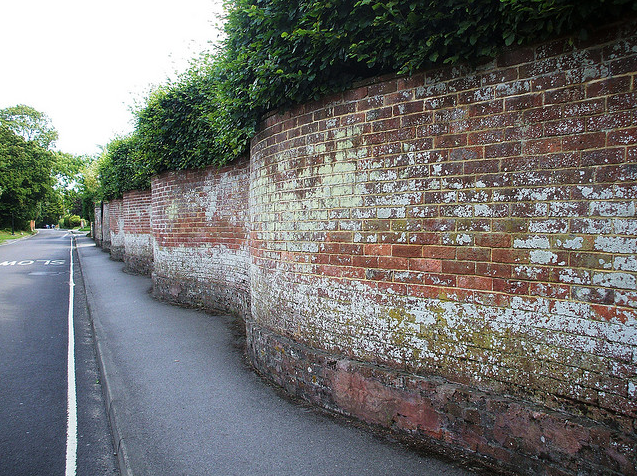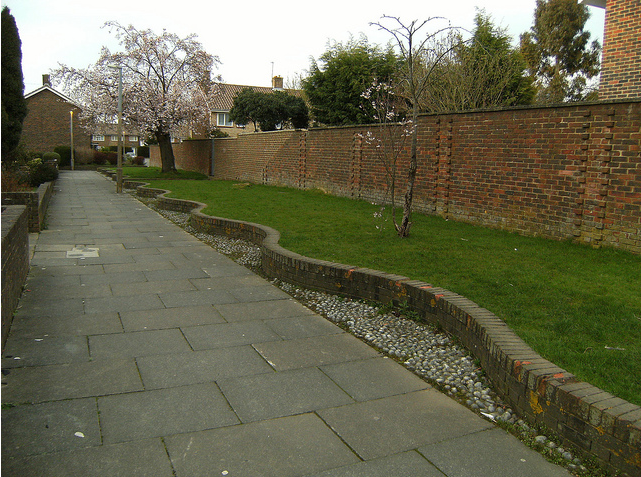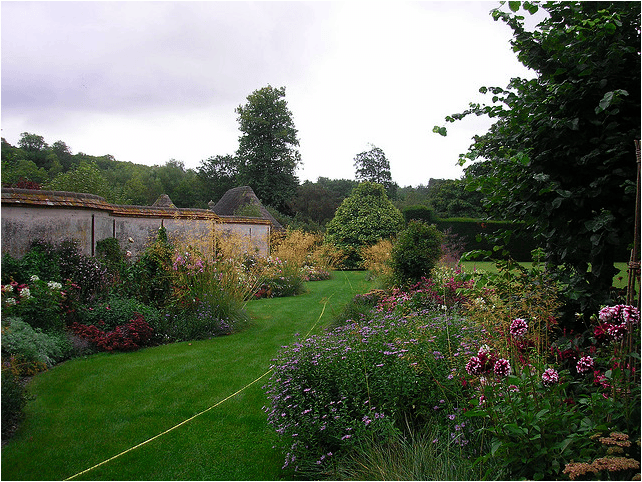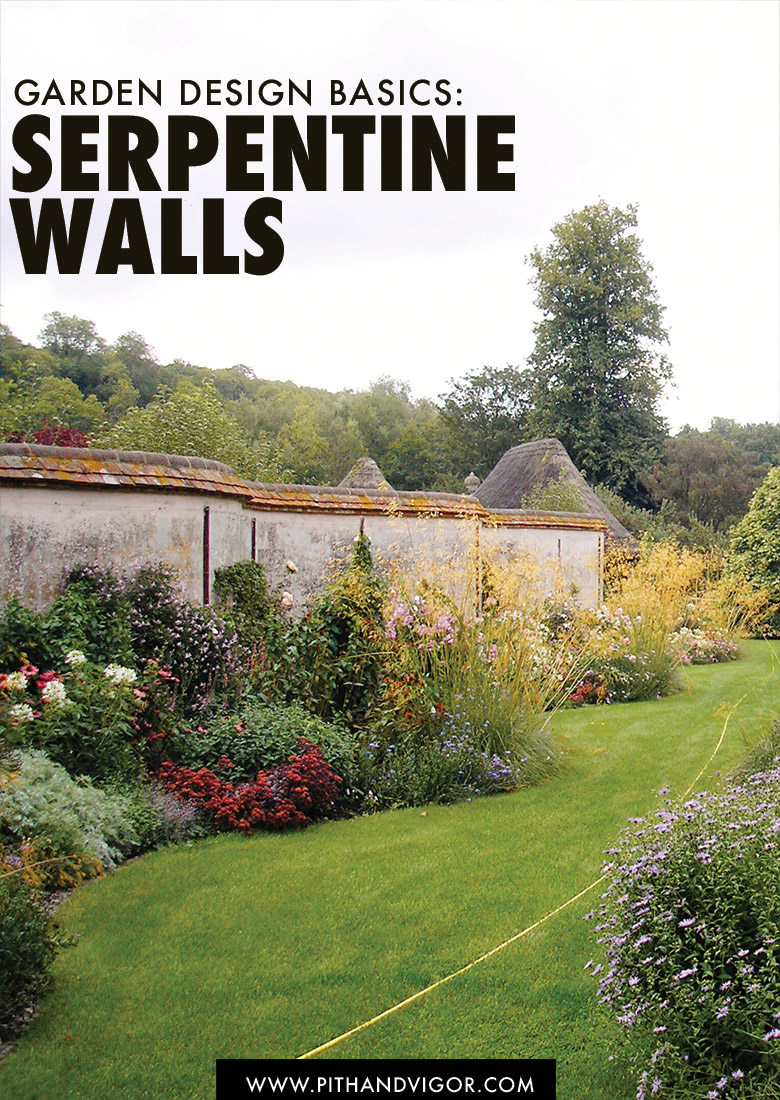What is that? I love the names of things in gardening and garden design. My husband is forever accusing me of making things up — the latest Latin…Kirengeshoma palmata (he thinks I made that name up), now this morning…crinkle crankle walls….No, I am not making this up.
What are Serpentine Walls – Also Known As Crinkle Crankle Walls?

Other names for it are ‘serpentine walls’ or ‘ribbon walls’, which are perhaps somewhat more descriptive. But in many places (particularly in England), they are called Crinkle Crankle Walls. They are also found in the Netherlands (having thought they originated there in the 16th century), where they are called slange muur—snaking wall.


Crinkle Crankle walls have curving lines following a serpentine path rather than a straight line. This layout gives the construction added strength and does away with the need for buttressing. Strength is the primary reason that they exist – the curvy walls are stronger against lateral forces that push against them. In order to get a strong straight wall, buttresses and multiple layers of materials are required. Conversely, these serpentine walls are built with a single layer of brick and are narrower (using less material) but are a stronger construction due to the wavy layout.
Serpentine walls are also frequently used in conjunction with growing fruit as it is thought that the curve of the wall traps and radiates the rays of the sun, which assists the fruit in growing and ripening in a short season.
These walls have been constructed throughout history and are still very relevant for modern garden makers. Why?
- Serpentine walls are beautiful.
- They are more economical (due to less materials and fewer bricks used) than standard straight walls.
- They help plants grow by reflecting heat and creating effective microclimates.
- Crinkum crankum walls (another name for them) use less brick but can withstand strong horizontal forces from wind load.
Where to see Serpentine Wavy Walls in the wild?
Wavy Brick walls can be seen on the University of Virginia Campus, At Thomas Jefferson’s estate, along Route 2 as you pass through Cambridge, MA, and widely through areas where there is a long history dating back to at least colonial times (the United States).
Additional posts about Native plants, stone walls, and other garden design basics.
images by the vintage cottage, *Notes , bluesoccerelephant
Share This Post:

WTH as a compromise…you can even sub hell for heck? Love the curves.
what the flora?
Eh, I don’t like it as a title for a couple of reasons. Most importantly, I think that while we all use that expression, it’s usually in regard to something that we don’t like, or at least think is really weird. The point of this new feature seems to be informative, but not negatively judgmental, so I don’t think it’s appropriate. Secondly, while some bloggers write in a slangy style (like ModFruGal for example), you generally don’t. It seems a little out of character, title-wise. Anyway, I like the content– I’ve heard serpentine wall, but never Crinkle Crankle.
Interesting post, R., Did you know that Thomas Jefferson designed and built serpentine walls on the campus of U. of Virginia in Charlottesville 160 years ago?
https://www.gobrick.com/BIA/technotes/t29a.htm
and a lovely and cool interpretation of the crinkle-crankle was designed by Andy Goldsworthy at Storm King Art Center. http://www.stormking.org/AndyGoldsworthy.html
Loved you images.
Love “WTF?” but…. that’s just me…
Modfrugal — so funny you say that…I told my husband that I thought I should use WTH (even before your comment)– he told me that would be ‘internet dorky’ and I shouldn’t….but with backing now I am tempted….
Linda — of course, I meant what the flora….
Sasha….love your thoughtful response…you are right…be myself…and write my normal way…but sometimes, I write an awful lot like I speak…but when I read how I speak, I realize that I can (and should) speak better….
Louise…no, I didn’t know that — once again you always share the most interesting stuff….and even more apropos, I have been planning a daily garden post about Thomas Jefferson’s garden….but didn’t know that there were crinkle crankle walls…
WTF- your husband is right…you did make up kirenshoma (Kirengeshoma palmata).
touche jamie 😉
I really enjoyed your naming dilemma. I wanted to start a regular feature called WTF too, but then I envisioned having to explain what that meant to my mother, or mother in law and decided against it. Instead I settled on WWTT…or ‘what were they thinking’. It’s turned into a code speak between my husband and I, which can come in really handy in a group situation. Of course I do use it a little more like S@sha observed.
I just found your blog…love it!